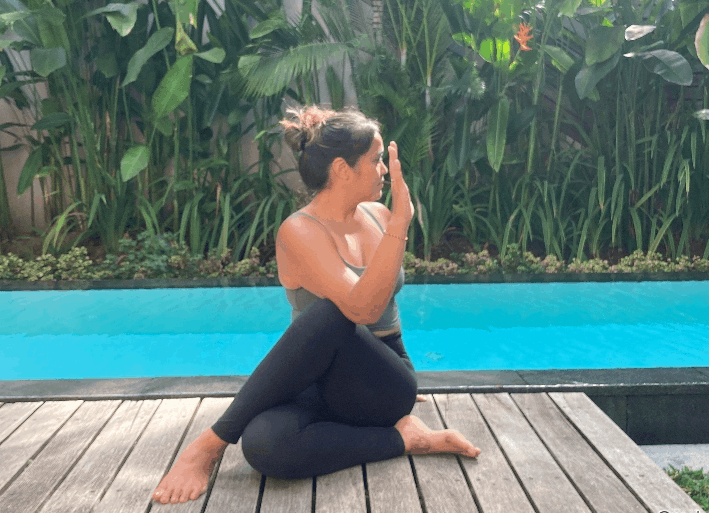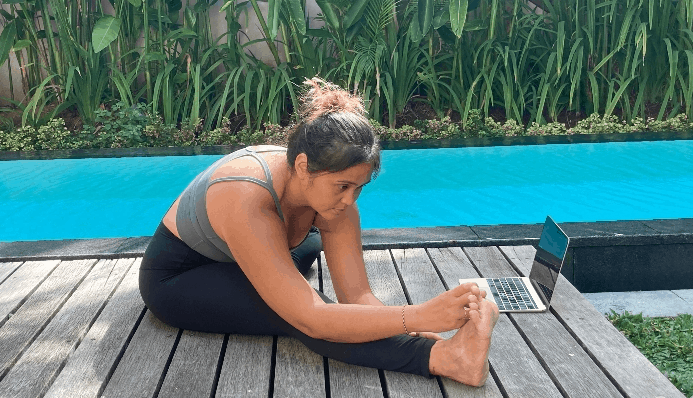Getting anxious around strangers or stressing over what other people think about you all the time? You’re far from alone.
Social anxiety is more prevalent than many people are aware of. And since mental health discussions are becoming more honest and open, you may be shocked at how many others feel the same way exactly. According to the Anxiety and Depression Association of America (ADAA), about 15 million adults in the U.S. experience social anxiety disorder each year—that’s 6.8% of the population. It affects both men and women equally and often starts during the preteen years.
There are several ways to manage social anxiety—therapy, mindfulness, and yes, even yoga can help.
Can Yoga Actually Help with Social Anxiety?
Yoga may not be a magic cure, but it can certainly make a huge impact. It teaches you to react in a different way to stressful situations, relaxes the physical tension which can lead to anxiety, and brings to the fore the unconscious patterns of thinking that feed anxious thoughts.
What Exactly Is Social Anxiety?
Social anxiety is more than just shyness or stage fright when speaking in public. It’s an intense fear of being judged, rejected, or criticized by others in social situations—be that at school, work, or just walking around in public.
Social anxiety can be so overwhelming that it interferes with your day-to-day life.
Although everyone can feel a little socially anxious at times, individuals with social anxiety genuinely struggle to make and maintain friends and frequently find social encounters draining or even upsetting.
What Triggers Social Anxiety?
There isn’t a single cause, and it often is a combination of things:
- Genetics: Anxiety disorders have a tendency to run in families. While scientists have not identified a “social anxiety gene,” an inherited connection is possible.
- Environment: An embarrassing or traumatic social experience in the early years of life may dictate your reaction to being around people. Also, being raised by overly anxious, controlling, or protective parents can play a role in learning social anxiety.
- Brain chemistry: If your amygdala (the fear center of the brain) is over-reactive, you may be more susceptible to fear reactions in social settings.
How Yoga Works with Your Nervous System

Yoga assists in balancing your autonomic nervous system, consisting of two components:
- The parasympathetic system, which is responsible for relaxation and rest
- The sympathetic system, which activates during fight-or-flight reactions to stress
Yoga—particularly through breathing and meditation—assists in raising serotonin and dopamine (your body’s natural mood elevators) and acts on your parasympathetic system, which makes you feel quieter and more in balance.
Yoga has been found to alleviate physical manifestations of anxiety by:
- Reducing your heart rate
- Lowering blood pressure
- Assisting you to control your breath better
How Yoga Can Assist You in Controlling Social Anxiety
In addition to physical benefits, yoga also reconditions your mind and emotional responses. When you practice physical postures (asana), breathing exercises (pranayama), or meditate, yoga instructs you to watch your thoughts and emotions without judgment.
1. Control Your Breath
Anxiety usually begins with erratic breathing. Yoga shows you how to remain calm and breathe steadily, even when you’re in a challenging position. That’s a skill that carries over into everyday life—when your breath remains calm, your mind usually does too.
2. Feel Grounded and Centered
Yoga poses ground you in your body. That grounding can quiet a racing or worried mind. You’ll often leave a session feeling more grounded and steady—and that sense of stability can follow you through the rest of your day.
3. Stay in the Present
Anxiety is a pro at residing in the future or past. Yoga brings your attention to the present moment. As you’re mindful of your breath and body in the pose, you’re building the mind to remain present—and that’s a valuable skill for dealing with anxiety.
4. Relax and Let Go
Struggling to relax? Every yoga class finishes with Savasana, a pose for total relaxation. It’s the ultimate time of release after practice—enabling your mind and body to relax and recharge completely.
5. Improve Your Confidence
Mastering a new yoga pose—no matter how tiny—can provide a huge boost of confidence. Although yoga is not about performance, making gains in your practice serves to build internal strength and trust in yourself, which is incredibly empowering.
6. Become the Observer
Yoga leads you to witness your experience without attachment. Rather than getting caught up in worrisome thoughts, you get to see them from afar. This leads to an understanding over time that you are not your thoughts—you’re the one seeing them.
Which Type of Yoga Is Best for Social Anxiety?
All yoga styles have the potential to benefit, but some may be more suitable for you than others based on your personality and energy levels. If remaining still is torture, attempt something more active. If you need to slow down, a softer practice might be in order.
Vinyasa Flow Yoga
Excellent if your brain is racing and sitting still is impossible. This quick, breath-synchronized practice keeps you on the move, engaged yet strong and confident.
Hot Yoga
In a warm studio, hot yoga tests you physically and mentally. Sustaining postures for more time creates toughness and can make you feel powerful and successful.
Yin or Restorative Yoga
These more relaxed styles allow you to relax and reconnect. With extended, meditative holds and deep breaths, they’re perfect for halting runaway thoughts and focusing on self-kindness.
Hatha Yoga
Don’t like heat or quick flows? Hatha yoga’s got you covered. You’ll hold the poses longer and tend to incorporate breathwork (pranayama), which can be extremely soothing and meditative.
What If Going to a Yoga Studio Makes Me Anxious?
Completely understand—entering a room packed with strangers can be daunting. The great news? You can definitely practice at home.
There are plenty of options online—YouTube classes, yoga apps, and even virtual private teachers. When you locate a teacher or class that suits you, begin modestly. Treat yourself with care, particularly if you’re a beginner. There’s no “correct” way to feel—just permit yourself to savor the process of creating a practice that serves you.
Yoga as a Tool for Managing Social Anxiety

Yoga is not simply stretching or posing. It’s a technique for your emotional and mental well-being. By practicing how to remain calm, present, and grounded, you provide yourself with real, effective tools to help you cope with social anxiety.
Next time worry begins to seep in, do this: slow down, listen to your breath, notice your body, and return to the present. Your yoga mat could be your sanctuary—and a path back to being solid, peaceful, and self-assured.

Leave a Reply